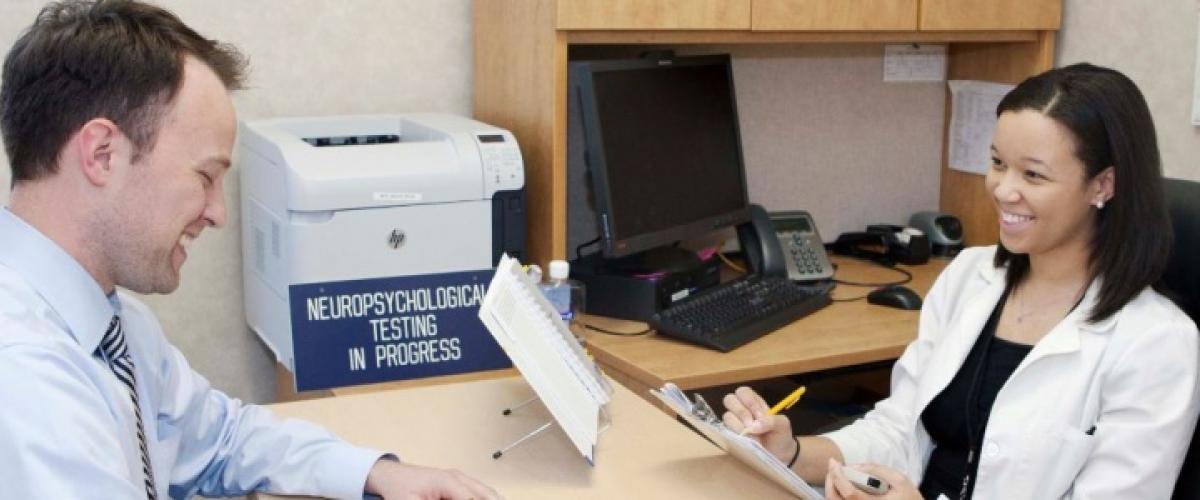
What is neuropsychology?
Diseases like stroke, Alzheimer's, Parkinson's, stroke and depression can all affect human behavior in addition to the brain and central nervous system. Clinical neuropsychology is a field that examines how these diseases, as well as other conditions like the natural aging process, affect our ability to think, function, and interact with others. Clinical neuropsychologists work one-on-one with patients to assess their brain functioning and skills.
An important part of this work is the neuropsychological evaluation, where a neuropsychologist tests a patient's thinking and memory for strengths and weaknesses. After establishing these patterns, the neuropsychologist works with a patient and other health-care providers to diagnose possible conditions, find a best treatment, and plan for the future.
What is a neuropsychological evaluation?
A neuropsychological evaluation provides a detailed picture of a person's memory and thinking skills. Parts of this test may be performed like an interview, with a neuropsychologist asking questions about your medical history, background, symptoms, and other factors.
During other parts of the evaluation, you may answer questions with a computer, or pencil and paper. This part of the evaluation examines many different areas, including:
- your ability to plan, organize, and complete tasks
- attention
- memory
- language
- mood and emotion
- intelligence
The evaluation usually takes several hours to complete. Once you have completed the exam, a neuropsychologist will compare your scores in each of these areas to healthy individuals of a similar age and background. Combined, these scores together will paint a picture about how your brain is functioning.
Why are neuropsychological evaluations important?
The neuropsychological evaluation is important for several reasons. Testing can identify problems such as memory loss early, before a patient notices them. Testing can also help to distinguish between illnesses that cause similar symptoms, such as stroke, depression, or Alzheimer's disease. Finally, the evaluation can establish a person's skills and abilities before there is a problem, so that later changes can be objectively measured.